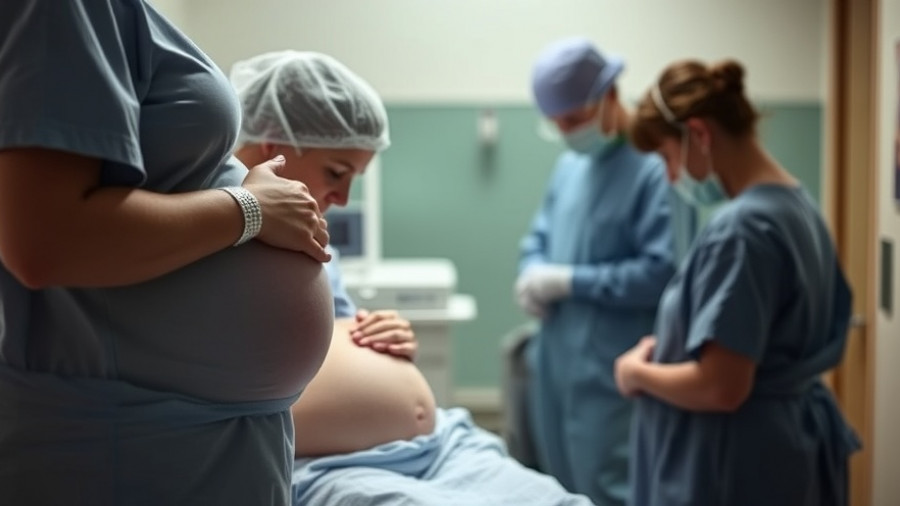
The Alarming Trend: Rising Risks in Childbirth
Recent reports have unveiled a troubling statistic: pregnant women in England face an increasing risk of serious injury during childbirth. A 16% spike in the occurrence of third- and fourth-degree perineal tears from June 2020 to June 2025 raises questions about NHS maternity care. Approximately 29 women in every 1,000 are sustaining these serious injuries, defined as obstetric anal sphincter injuries (OASI), which can lead to long-term trauma both physically and mentally.
Understanding Perineal Tears and Their Impact
The impact of OASI injuries is profound. These injuries, which occur at an emotionally intense moment that should be rooted in joy, can result not only in bodily damage but also in psychological repercussions such as post-traumatic stress disorder. Women report lingering anxieties about subsequent pregnancies and childbirth, highlighting the need for better care and procedures in maternity units.
Behind the Statistics: Staffing and Resource Issues
Experts attribute the rise in childbirth injuries to significant issues within NHS maternity care, including understaffing and inadequate assessment of each mother’s risk factors. Many hospitals reportedly fail to implement recommended assessment methods for identifying potential tears, leaving new mothers vulnerable at a critical time. This sheds light on broader systemic challenges within the NHS, where financial strains and workforce shortages directly affect the quality of care delivered.
A Call for Immediate Action
The concerns are echoed by health representatives, such as Helen Morgan, who emphasizes the dire need for immediate reform. The failure to provide adequate care can lead to life-altering injuries, placing mothers and their newborns in jeopardy. Each statistic represents real stories, real lives—the heartbreak triggered by avoidable injuries calls for urgent government intervention.
Community Voices: Real Stories and Human Experiences
Furthermore, conversations sparked by these statistics have surfaced powerful stories from affected mothers. One woman detailed how a misdiagnosis of her perineal tear left her struggling with ongoing health issues, underlining the emotional burden that accompanies medical neglect.
Exploring Solutions and the Future of Maternity Care
In response to the increase in childbirth injuries and the overall culture of care in the NHS, health authorities have proposed a national task force aimed at reforming maternity services. This initiative reflects an understanding that patterns of failure must be addressed on a collective level, stimulating a national discourse on improving maternity care for future generations.
Encouraging Good Practices: How Communities Can Support Change
Communities have a crucial role to play in the dialogue about maternity care. Awareness events, local support groups, and knowledge-sharing forums can empower women and families to speak out about their experiences, potentially leading to more significant systemic changes. When individuals share their stories, they contribute to a collective understanding of the maternal health crisis.
What Can Be Done: Action Steps for Individuals
It's vital for current and future parents to arm themselves with information and to advocate for improved care standards. Understanding community health and wellness initiatives can pave the way for enhancing the overall maternity experience. Engagement with health services, feedback on care experiences, and participation in health forums can amplify the push for change.
Conclusion: The Importance of Advocacy in Maternal Health
While the statistics are alarming, they also serve as a potential catalyst for change. By promoting a dialogue around maternal health, sharing real stories of individuals, and advocating for systemic change, communities can begin to combat the barriers to quality care faced by many new mothers in England. Making strides toward understanding the full spectrum of health and wellness in maternity can lead to better outcomes not just for individuals, but for families across the nation.
 Add Element
Add Element  Add Row
Add Row 




Write A Comment